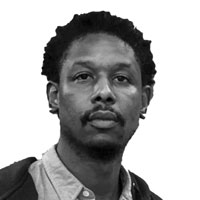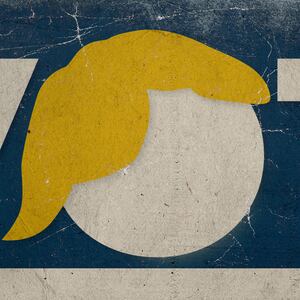I can’t answer who is the better, bolder liar, America or me. That’s a dishonest question because one doesn’t exist without the other. American lies make me who I am. My family came to this country from Jamaica to thrive off the profit of American lies and absorb overhead costs of abject suffering.
Lucinda Taylor, her given name Lucinda Hodges, taught at P.S. 20, one of Brooklyn’s oldest elementary schools, from 1984 to 1998, covering New York’s crack era. She had seen and lived through the heroin craze of the ’70s, when Times Square was no more than a haven for junkies and a picture of her children’s worst fears. Aunt Lu saw her sister’s only child struggle with crack addiction, and meanwhile warned her fifth graders to say no to the sweetest candy America would ever provide them. The Brooklyn schools where Lu taught somehow defied the American prosperity blossoming nearby.
Still, Lu guarded her dream, as those before her did, and purchased a brownstone at the edge of Clinton Hill in the mid-’70s, which was eminently risky at the time. The scourge of crack-stricken neighborhoods devalued brownstones to as low as $5,000 in a 1981 auction. That might be enough for a monthly rent payment in one now. She held onto that house until 2019, a decade after her husband William passed. A buyer slipped a handwritten note under her door and she took the offer. The crack babies and drunkards on her avenue once shuffled through her classroom.
Joy, my mother’s eldest sister, graduated with a master’s in nursing. She became the head of her crew at Andrews Air Force Base Hospital in Maryland. She also labored at an assisted-living facility, working mostly weekday shifts until midnight turned dawn and her sleep cycle dissolved in the 80-mile commute from one job to the other. Then, the coronavirus pandemic hit. The country where she’d made a career tending to bodies (and deaths) loudly failed her. An American president infamous for thrusting feints of courage to offset immeasurable cowardice lied to the nation. He stood tall on his lie, claiming it was white and meant to protect us from panic and ourselves. A career liar, he insinuated that health-care workers, women like my Auntie Joy, were stealing protective gear from the very patients they had once and always risked themselves to protect.
Of course, he was backed by a history of lies marking the undervalued significance of care workers. Today, 235,331 people have died from the novel coronavirus plague. Of those deaths, health-care workers suffered disproportionate levels of infection and the mortal complications thereof. Black women who are nurses represent one of the highest-risk groups, among the 22 percent of health-care workers contracting COVID-19 on the job.
Another Black nurse, Mary Grimes, assumed the cost of American lies for a mere footnote in history books. Grimes and 11 other nurses at the Medical University of South Carolina were fired after complaining of race discrimination at their workplace. On the heels of Dr. Martin Luther King’s 1968 death and contagious racial malaise, those Black women nurses stood with Coretta Scott-King in a 120-day strike against the banal strain of bigotry they endured. Their employers retaliated, reinforcing American myths, until they could mute the din of injustice.
By 2015, Christine Nelson, also a Black nurse at MUSC, reminded administrators of the devastating lie that had felled Grimes and her cohort. Nelson, in a cycle that would be ironic if it weren’t so assured, also got fired for dredging up the account and meaning of that lie. Her experience battling racism left her feeling unsafe: she was targeted for demanding restitution for her forebears in the form of a written apology. Her employers would brook no such resistance. She awaits justice in a 2016 civil complaint she filed against the hospital.
On March 26, 2020, Auntie Joy sent me a picture message of herself at the hospital. She was suited up in a futuristic hazmat costume, uniformed with makeshift visors she and her co-workers crafted out of necessity. Because American lies charged too steep a price, they had learned to defend their hands, their nostrils, their bodies in the ways our government had refused. She looked like a Transformer. It was terrifying.
I told her sons, my favorite cousins, that this was typical recourse for workers, for abandoned Black laborers. Her first son agreed. He has to clock shifts at the nation’s most crowded correctional facility. Her youngest serves in the National Guard Reserves, like she did, courting the president’s men as the nation stirs up bouts of rebellion. I told them that America is a ghetto of vicious lies masquerading as a free country. The Election Day fervor alarmed them anyhow because they were boggled by results flipping overnight and reports of interference. I remain unsurprised by the gradual and constant slippage of the United States experiment.
The Economist’s quality of life index—which rates how livable countries are based on a gamut of factors like access to affordable health care, life expectancy, job security, infrastructure, media independence, and political stability—has closely monitored American decline. Where categories like income have improved or remained flat for the average citizen, medical care and infrastructure have flagged. Detroit has ranked among the world’s least liveable cities since 2017. For all our boasts of an American idea industry, the education system has consistently idled compared to other nations, massaging a contented median instead of growing.
The era of jingoism and wealth inequality has eclipsed the fertile red clay dreams of my Auntie Joy and Aunt Lu. We also reel from the election results of the past 20 years, with one recount sent to a kangaroo court tilted in favor of the closest we have to a political heir class, the Bushes, and another recount portending the angry tantrum phase of an ousted oligarch.
Yet, I understood how soothing the lie of greatness was. When I accept that our schools fail to arm citizens with critical thinking, pain rings out. When I accept that the tech giants of Silicon Valley create sophisticated, insidious tools to mine my data and protect theirs but not to design software for a seamless digital vote, the wounds rip wide open. I feel better off pretending I don’t know, pasting on achievement stickers, and accruing invisible interest from centuries of dashed hope. But until I face my silence about a nation in decline, I’ll further injure the future, casting ballots from the sea floor of a forgotten Middle Passage.







